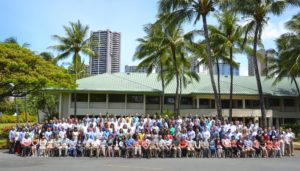
One hundred fifty Fellows from nine locations took part in the June 20 to 24 Asia-Pacific Orientation Course (APOC 16-2) at the Daniel K. Inouye Asia-Pacific Center for Security Studies.
Gaining a deeper understanding of regional security issues, 150 professionals completed the Asia-Pacific Orientation Course (APOC 16-2) at the Daniel K. Inouye Asia-Pacific Center for Security Studies June 24.
APOC is a five-day course designed to provide an overview of regional states and trends in socio-economic, political, defense, health and environmental arenas that drive the Asia-Pacific’s security environment. Faculty members address these areas in the context of major sub-regions, such as Southeast Asia and Oceania. Attendees are predominantly junior- to mid-grade U.S. military members and their civilian counterparts in various security-related fields, however, the APOC roster includes a small number of international Fellows.

Capt Thomas Wall, a chief staff officer with the U.S. Navy Reserve, leads a seminar discussion during the Asia-Pacific Orientation Course (APOC 16-2) held June 20 to 24 at the Daniel K. Inouye Asia-Pacific Center for Security Studies.
Course manager Dr. Jeffrey Reeves said the program promotes critical thinking about a region that is increasingly complex while enabling Fellows to connect with peers. “This, in turn,” said Reeves, “enhances their ability to cooperate across the spectrum of security-related agencies while addressing regional challenges and concerns.”
APOC Fellows learned through a combination of plenary discussions, electives and seminar sessions that allowed them to share perspectives on key course topics.
Among 13 topical discussions was “U.S. Foreign Policy in the Asia-Pacific,” led by DKI APCSS Foreign Policy Advisor Brent Christensen. He walked Fellows through the U.S. national security policy-making structure and addressed the evolution of U.S. relations in the region. Other plenary topics included “Economics in the Asia-Pacific” by Dr. Miemie Byrd and “Security Dynamics in Northeast Asia” by Dr. Van Jackson. Center Director retired Lt. Gen. Dan Leaf closed the course with “Next Steps to Promoting Security: Fostering Strategic Growth.”
“The in-depth information we received in this course allows us to make better decisions when we’re planning,” said Maj. Kenneth McGinnis, a joint engineer plans officer with U.S. Pacific Command. The major added that his organization works infrastructure projects throughout the region, and the contacts he’s gained through APOC may prove beneficial in future work.
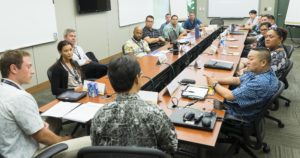
One of 10 seminar groups in the Asia-Pacific Orientation Course (APOC 16-2) meet to share perspectives on security issues addressed in a previous topical discussion. Seminar sessions enable Fellows to build professional connections with their peers in security-related fields.
Joining McGinnis and other U.S. participants in APOC 16-2 were Fellows from Australia, Canada, China, India, Japan, New Zealand, Singapore and Taiwan.
APOC is one of six formal courses at DKI APCSS. The center is a Department of Defense institute that addresses regional and global security issues. Military and civilian representatives, most from the United States and Asia-Pacific nations, participate in a comprehensive program of executive education, professional exchanges and outreach events, both in Hawaii and throughout the Asia-Pacific region.
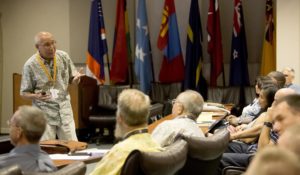
Daniel K. Inouye Asia-Pacific Center for Security Studies professor Dr. Al Oehlers presents the brief “Security Dynamics in Oceania” June 23 during the Asia-Pacific Orientation Course (APOC 16-2).
The Center supports U.S. Pacific Command by developing and sustaining relationships among security practitioners and national security establishments throughout the region. APCSS’ mission is to build capacities and communities of interest by educating, connecting and empowering security practitioners to advance Asia-Pacific security. It is one of the Department of Defense’s five regional security studies centers.
Since opening in 1995, more than 10,000 alumni representing over 122 countries and territories have attended APCSS courses and workshops.
-END-


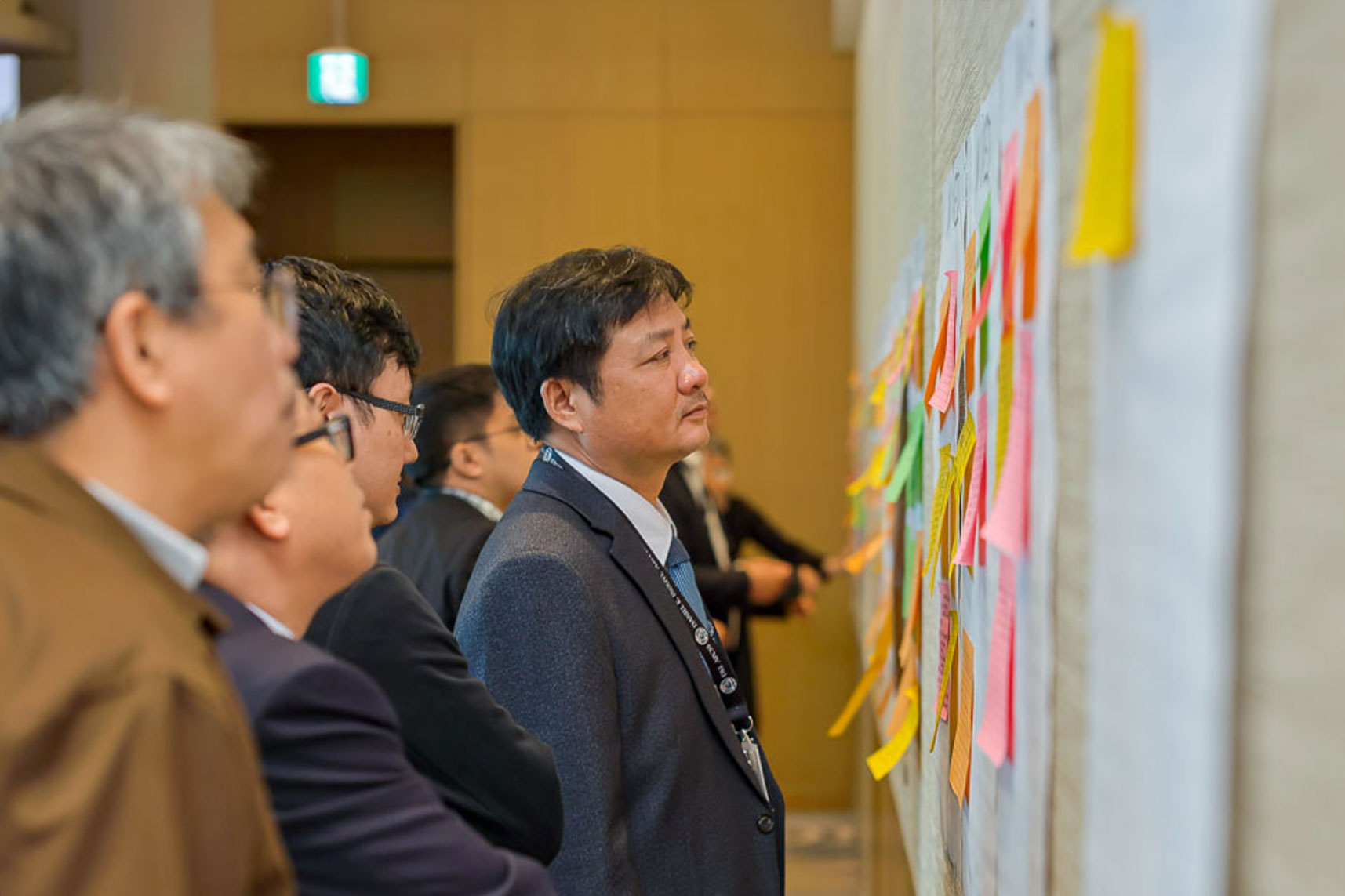
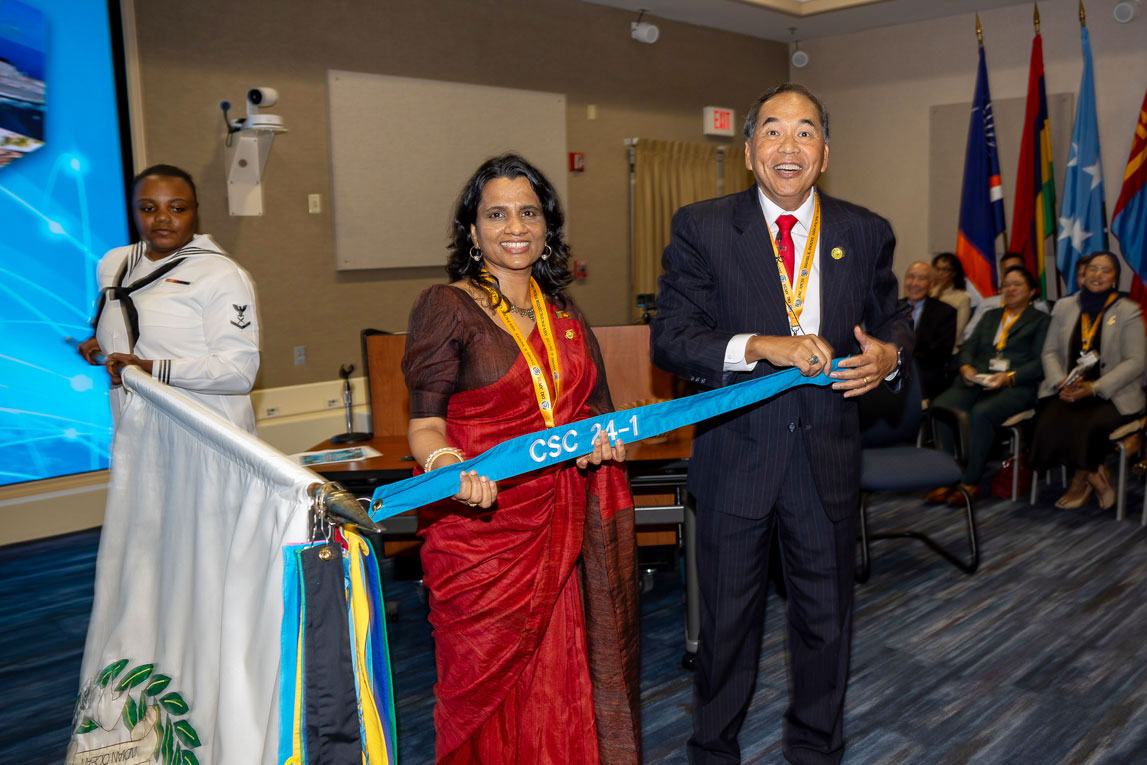





Leave A Comment